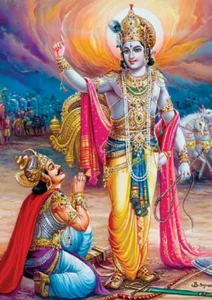Shri Krishna Janmashtami, which will be observed on August 26, 2024, commemorates the birth of Lord Krishna, a highly esteemed figure in Hinduism. His existence and teachings have significantly influenced Indian culture, spirituality, and philosophical thought. This festival serves as a period of celebration, devotion, and introspection for millions of followers around the globe, fostering a sense of community and spiritual connection.
The narrative of Shri Krishna begins over 5,000 years ago during the Dwapara Yuga, when he was born as the eighth incarnation of Vishnu in the city of Mathura. The epic Mahabharata recounts the miraculous circumstances surrounding his birth, which was destined to liberate the world from the oppressive reign of his maternal uncle, King Kansa. Fearing a prophecy that foretold his demise at the hands of Devaki’s child, Kansa imprisoned her and her husband, Vasudeva. However, on the night of Krishna’s birth, divine forces intervened, allowing Vasudeva to escape with the newborn across the Yamuna River to Gokul, where he was nurtured by Nanda and Yashoda.

Among the myriad devotees of Krishna, Meera Bai is particularly notable for her profound devotion and love for the deity. A princess from Rajasthan in the 16th century, Meera Bai renounced her royal privileges to wholly devote herself to Krishna. Her life and poetic expressions reveal an unwavering commitment to Krishna, whom she perceives as her divine beloved and eternal companion. The bhajans she composed continue to resonate today, illustrating the enduring essence of her devotion. Meera Bai’s love for Krishna defied societal conventions, establishing her as a prominent figure of bhakti, or devotional practice, within Indian spirituality.
Krishna’s involvement in the Mahabharata, one of the two principal Sanskrit epics of ancient India, is pivotal to the storyline. He embodies not only a divine entity but also a diplomat, charioteer, and mentor. His most notable contribution to the Mahabharata is the Bhagavad Gita, a revered 700-verse scripture that forms part of the Bhishma Parva of the epic. In this text, Krishna imparts profound philosophical and ethical teachings to the warrior Arjuna, addressing the moral dilemmas faced in the context of duty and righteousness.



